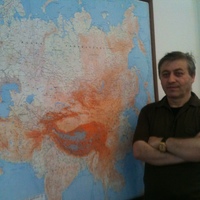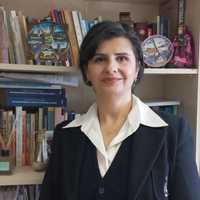Papers by Selcuk Altuntas
Journal of Turkish Studies

This paper deals with Musa Jarullah Bigiyev’s Tatar translation of
the Qur’an within the context ... more This paper deals with Musa Jarullah Bigiyev’s Tatar translation of
the Qur’an within the context of internal Muslim affairs in Russia at the beginning of the 20th century. Bigiyev’s Tatar translation of the Qur’an, which was completed in 1912, remains one of the mysteries of the academic study of the Qur’an in the Turkic world. Having been barred from publication by the Orenburg Muslim Spiritual Assembly (the Sobraniye), its whereabouts has been puzzling researchers for the last hundred years. In 2010, a so-called facsimile of it came out in Kazan by Elmira Tagirdjanova and Gareyeva. However, seven years later, in
2017, the enthusiasm turned to disappointment as it turned out to be the exact copy of SüleymanTevfik’sTercüme-i Şerife: TürkçeKur’an-ıKerim (1926), which is one of the first full Turkish translations of the Qur’an in the republican era. Having evaluated Bigiyev’s translation within the context of internal Muslim affairs in Russia, this paper deals with the story of Bigiyev’s failed publication attempt in 1912 and the false promise of the Kazan Edition in 2010.
This MA thesis looks at Ebussuud Efendi's fatwas regarding the Christians and Jews of the Ottoman... more This MA thesis looks at Ebussuud Efendi's fatwas regarding the Christians and Jews of the Ottoman Empire.
Thesis Chapters by Selcuk Altuntas

The present work is an intellectual biography of Musa Jarullah Bigiyev (1875-1949), who was a Tat... more The present work is an intellectual biography of Musa Jarullah Bigiyev (1875-1949), who was a Tatar Muslim scholar from Russia. His areas of expertise covered a vast area from Islamic jurisprudence to political theory, to name just two fields. Besides, he had a command of multiple languages, i.e., Turkic in its various branches, Arabic, Persian, Russian, and maybe Urdu. The existing literature on Bigiyev often time looks at him through the framework of Jadidist vs. Qadimist binary, which entails certain terminology, such as “reformist,” “modernist,” “jadidist,” “traditional,” “modern,” etc. Although the majority of sources put him on the “reformist” end of the religious spectrum, still some others locate him on the opposite end. There are also reconciliatory approaches that situate him in between. By taking anthropologist Talal Asad's notion of Islam as a discursive tradition as its theoretical framework, this work looks at Bigiyev's place within the Islamic intellectual tradition beyond the established discourse of Jadidism. By looking at the diversity in Islam through Asad’s notion of Islam as a discursive tradition, it does not make sense to put it into binaries, such as traditional vs. modern, urban vs. rural, ulama vs. Sufi, reformist vs. traditional, etc. One manifestation of this bifurcation in the study of Islam in Russia and Central Asia is the Jadidist vs. Qadimist binary. For Asad, Islam is a tradition. What makes a tradition is not always agreements, but also disagreements. Asad claims that what determines proper Islamic behavior and practice in a given context is the discourse. This is how he explains the apparent diversity within the Islamic tradition. This work is an attempt to understand the ways in which Bigiyev manipulated tradition to determine the apt Islamic practice in his context.
Talks by Selcuk Altuntas
My interview with IdelRealii.
The interview that I gave to Tatarstan's Azatliq Radiosi on Musa Jarullah Bigiyev.











Uploads
Papers by Selcuk Altuntas
the Qur’an within the context of internal Muslim affairs in Russia at the beginning of the 20th century. Bigiyev’s Tatar translation of the Qur’an, which was completed in 1912, remains one of the mysteries of the academic study of the Qur’an in the Turkic world. Having been barred from publication by the Orenburg Muslim Spiritual Assembly (the Sobraniye), its whereabouts has been puzzling researchers for the last hundred years. In 2010, a so-called facsimile of it came out in Kazan by Elmira Tagirdjanova and Gareyeva. However, seven years later, in
2017, the enthusiasm turned to disappointment as it turned out to be the exact copy of SüleymanTevfik’sTercüme-i Şerife: TürkçeKur’an-ıKerim (1926), which is one of the first full Turkish translations of the Qur’an in the republican era. Having evaluated Bigiyev’s translation within the context of internal Muslim affairs in Russia, this paper deals with the story of Bigiyev’s failed publication attempt in 1912 and the false promise of the Kazan Edition in 2010.
Thesis Chapters by Selcuk Altuntas
Talks by Selcuk Altuntas
the Qur’an within the context of internal Muslim affairs in Russia at the beginning of the 20th century. Bigiyev’s Tatar translation of the Qur’an, which was completed in 1912, remains one of the mysteries of the academic study of the Qur’an in the Turkic world. Having been barred from publication by the Orenburg Muslim Spiritual Assembly (the Sobraniye), its whereabouts has been puzzling researchers for the last hundred years. In 2010, a so-called facsimile of it came out in Kazan by Elmira Tagirdjanova and Gareyeva. However, seven years later, in
2017, the enthusiasm turned to disappointment as it turned out to be the exact copy of SüleymanTevfik’sTercüme-i Şerife: TürkçeKur’an-ıKerim (1926), which is one of the first full Turkish translations of the Qur’an in the republican era. Having evaluated Bigiyev’s translation within the context of internal Muslim affairs in Russia, this paper deals with the story of Bigiyev’s failed publication attempt in 1912 and the false promise of the Kazan Edition in 2010.